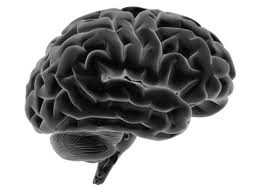 Epidemiologists with the Centers for Disease Control have issued a national health advisory that a brain disorder first identified last year is on the rise. At current rates, it may affect 10 million by 2020.
Epidemiologists with the Centers for Disease Control have issued a national health advisory that a brain disorder first identified last year is on the rise. At current rates, it may affect 10 million by 2020.
The previously rare condition, dubbed kirtananandanitis by its discoverer, is commonly known as “bhav brain.” It seems to be caused by prolonged periods of chanting kirtan, an obscure practice popularized in 15th century India that, like yoga, has gained a huge following in the West. The CDC issued the alert after a team of scientists discovered evidence of the condition in every town and village.
While the highest concentrations were found in and around spiritual hot spots such as temples and ashrams, chant festivals, progressive universities and Jivamukti yoga centers, there was also startling evidence of the condition in living rooms across the nation, where people are increasingly gathering to chant in community, for free.
A CDC spokesperson emphasized that there was no imminent danger associated with the increasing incidence of bhav brain. In fact, he called it an encouraging trend, given the stress-reduction and brain-health advantages of participating in a community-oriented spiritual practice involving singing, dancing and playing musical instruments. He cautioned, however, that practitioners of kirtan tend to do a lot of hugging.
“We just thought the public should be aware that this is increasing, and if they notice these kinds of gatherings where people are chanting and dancing and generally loving one another, that there’s nothing to be concerned about,” he said.
Symptoms of bhav brain include markedly decreased attachment to one’s self-identity, blurring of the demarcation between “self” and others, disillusionment with materialistic gain, and reduced anxiety about what the future may bring (see bhakti scholar Shyamdas explain it in the video below). Some people report experiencing a sense of divine union under the influence of kirtan. In extreme cases, bhav brain can produce symptoms suggestive of intoxication or drug use, which might include inexplicable elation, stumbling or wandering aimlessly, or general “spaciness.”
If you or someone you know is experiencing any of these symptoms, experts suggest you immediately assume a lotus position and repeat your mantra of choice 108 times. Do not — we repeat, do NOT — attempt to drive.
Here is an explanation of the bhav from a leading scholar and practitioner of bhakti yoga, the late Shyamdas, who described what it means to be “in the bhav” during a workshop at Bhakti Fest, one of the Western kirtan world’s largest gatherings.
If you like this, you might also like “10 Signs You Might Be a Kirtan Addict”
The Bhakti Beat needs your support! We are non-commercial and not-for-profit, a free service to the bhakti community that is completely self-funded save for the loving contributions of Bhakti Beaters like you. Your support is critical — please share the Beat with your bhakti peeps, connect with us on social media (links below), and consider a one-time or recurring donation (DONATE HERE) to help us keep this bhav boat afloat. Thank you from the bottom of our bhav brain. In loving service...
Hare Krishna Hare Krishna Krishna Krishna Hare Hare Hare Rama Hare Rama Rama Rama Hare Hare Dear Lord, kindly engage me in your service. Follow The Bhakti Beat on facebook Follow The Bhakti Beat on twitter Subscribe to our YouTube channel Find us on Google+








Marvelous!
Im kirtaniya and i am not happy with the way this news has been put across..should have been positive and looks negative…